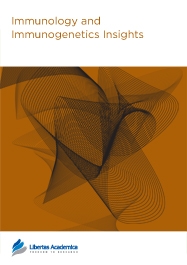 Genetische veranderingen in belangrijke receptoren m.b.t. immunologische en cellulaire functie dragen bij aan de ontwikkeling van ME/cvs
Genetische veranderingen in belangrijke receptoren m.b.t. immunologische en cellulaire functie dragen bij aan de ontwikkeling van ME/cvs
Louise Durack, 12 mei 2015
Nieuwe onderzoeksresultaten werpen licht op de mogelijke oorzaak van myalgische encefalomyelitis /chronisch vermoeidheidssyndroom (ME/CVS).
Onderzoekers van de National Centre for Neuroimmunology and Emerging Diseases (NCNED) aan de Griffith Universiteit – dat deel uitmaakt van het nieuwe Menzies Health Institute Queensland, Australië – hebben belangrijke factoren ontdekt die bijdragen aan de pathologie van deze ziekte.
De resultaten onthullen genetische veranderingen in belangrijke receptoren die geassocieerd zijn met de immunologische en cellulaire functie en bijdragen aan de ontwikkeling van deze complexe ziekte.
“Deze bevindingen werden bereikt door een gezamenlijke inspanning van onderzoekers, patiënten, finanacieringsorganen, clinici, en de steun van de Griffith Universiteit en de regering van Queensland,” aldus hoofdonderzoekers Professor Sonya Marshall-Gradisnik en Professor Donald Staines.
Co-onderzoeker en consulterend immunoloog Professor Pete Smith zei dat belangrijke signaliseringsmechanismen onderbroken worden als gevolg van genetische veranderingen die te maken hebben met het opsporen van en de reactie op bedreigingen.
“Dit zijn primitieve genen die betrokken zijn bij veel cellulaire signalen in de hersenen, darmen, cardiovasculaire en immuunsystemen, en ook bij het pijnstelsel.”
Deze onderzoeksresultaten vielen samen met de internationale Neuro-immuun Awareness week die begon op maandag 11 mei.

© Griffith University
Het Griffith Health Centre op de Gold Coast campus van de universiteit werd elke avond tussen 10 en 12 mei verlicht om neurologische ziekten zoals ME/CVS evenals andere aandoeningen zoals fibromyalgie en het Golfoorlogsyndroom onder de aandacht te brengen.
“Het oplichten van het Griffith Health Centre illustreert de inzet van Griffith voor de ME/CVS-patiëntengemeenschap en onze teamaanpak voor het onderzoek naar deze ziekte,” zei plaatsvervangend universiteitshoofd van de sector gezondheid Professor Allan Cripps.
ME/CVS is een uiterst invaliderende aandoening die gekenmerkt wordt door diepgaande vermoeidheid, spier- en gewrichtspijn, cerebrale symptomen van verminderd geheugen en concentratie, verminderde cardiovasculaire functie, darmstoornissen en sensorische disfunctie zoals intolerantie voor geluid en evenwichtsstoornissen. Veel gevallen kunnen maanden tot jaren duren. Men denkt dat ongeveer 250.000 Australiërs getroffen zijn.
De onderzoeksresultaten werden gepresenteerd op een internationale conferentie in Londen later die maand*.
*Op vrijdag 29 mei hield tijdens de Invest in ME-conferentie in Londen prof. Sonya Marshall-Gradisnik aan de hand van powerpoints een voordracht over dit onderzoek.
© Vertaling ME-gids. Met dank aan Rob voor de correctie.
 Examination of Single Nucleotide Polymorphisms (SNPs) in Transient Receptor Potential (TRP) Ion Channels in Chronic Fatigue Syndrome Patients
Examination of Single Nucleotide Polymorphisms (SNPs) in Transient Receptor Potential (TRP) Ion Channels in Chronic Fatigue Syndrome Patients
Background: The transient receptor potential (TRP) superfamily in humans comprises 27 cation channels with permeability to monovalent and divalent cations. These channels are widely expressed within humans on cells and tissues and have significant sensory and regulatory roles on most physiological functions. Chronic fatigue syndrome (CFS) is an unexplained disorder with multiple physiological impairments.
Objectives: The purpose of this study was to determine the role of TRPs in CFS.
Methods: The study comprised 115 CFS patients (age = 48.68 ± 1.06 years) and 90 nonfatigued controls (age = 46.48 ± 1.22 years). CFS patients were defined according to the 1994 Center for Disease Prevention and Control criteria for CFS. A total of 240 single nucleotide polymorphisms (SNPs) for 21 mammalian TRP ion channel genes (TRPA1, TRPC1, TRPC2, TRPC3, TRPC4, TRPC6, TRPC7, TRPM1, TRPM2, TRPM3, TRPM4, TRPM5, TRPM6, TRPM7, TRPM8, TRPV1, TRPV2, TRPV3, TRPV4, TRPV5, and TRPV6) were examined via the Agena Biosciences iPLEX Gold assay. Statistical analysis was performed using the PLINK analysis software.
Results: Thirteen SNPs were significantly associated with CFS patients compared with the controls. Nine of these SNPs were associated with TRPM3 (rs12682832; P ≤ 0.003, rs11142508; P < 0.004, rs1160742; P < 0.08, rs4454352; P ≤ 0.013, rs1328153; P ≤ 0.013, rs3763619; P ≤ 0.014, rs7865858; P ≤ 0.021, rs1504401; P ≤ 0041, rs10115622; P ≤ 0.050), while the remainder were associated with TRPA1 (rs2383844; P ≤ 0.040, rs4738202; P ≤ 0.018) and TRPC4 (rs6650469; P ≤ 0.016, rs655207; P ≤ 0.018).
Conclusion: The data from this pilot study suggest an association between TRP ion channels, predominantly TRPM3 and CFS. This and other TRPs identified may contribute to the etiology and pathomechanism of CFS.
Hoe citeren?
Marshall-Gradisnik SM, Smith P, Brenu EW, Nilius B, Ramos SB, Staines DR: Examination of Single Nucleotide Polymorphisms (SNPs) in Transient Receptor Potential (TRP) Ion Channels in Chronic Fatigue Syndrome Patients. Immunology and Immunogenetics Insights 2015, 7:1-6. [Abstract] [PDF]





